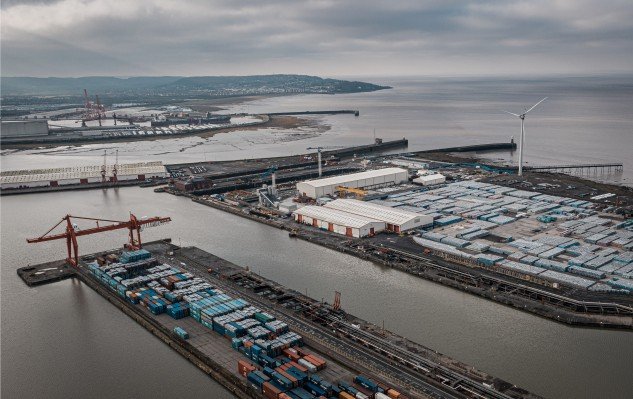Global industry leaders are cutting back on investments in inclusion and equal opportunity programs. Donald Trump blames employees hired through quotas for large-scale disasters, such as the plane crash near Washington and the wildfires in California. How relevant is the concept of social justice, and what might the future of DEI (Diversity, Equity, and Inclusion) policy look like?
What does DEI mean?
DEI (Diversity, Equity, and Inclusion) gained prominence after the 1960s acts, which prohibited discrimination based on race, color, sex, or national origin. These ideas began influencing the corporate sector. In the 1960s and ’70s, many companies started incorporating diversity into their business strategies by providing diversity training, according to a 2008 report from the Academy of Management Learning & Education. These efforts came around the same time as affirmative action, introduced by President John F. Kennedy through an executive order. While affirmative action and DEI share similar goals, they differ. Affirmative action required federal contractors to treat applicants equally based on race, color, religion, and sex.
In the 21st century, movements like Me Too and Black Lives Matter fueled interest in DEI. They highlighted social injustice and inequality. These movements brought awareness to the need for change. As a result, both public organizations and private companies adopted new standards and programs. These programs aimed to raise awareness about biases—whether related to race, gender, or other differences—and their impact on decision-making and business success.

DEI efforts and financial investments
For instance, many companies introduced unconscious bias training. This helps employees recognize and address biases, fostering a more inclusive and fair work environment. Companies like Google and Microsoft have made their hiring processes inclusive and transparent. They use data analytics to monitor and reduce gender or racial disparities in recruitment and promotions. Furthermore, organizations have implemented leadership programs for underrepresented groups, such as women and minorities. These initiatives promote diversity and inclusion and are essential for business success. They contribute to a more innovative, productive, and engaged workforce.
As DEI’s focus grows, it has become a significant financial investment for companies worldwide. In 2020, the global DEI market, which includes spending on employee resource groups and diversity-related programs, was valued at $7.5 billion. This figure is expected to double by 2026. Despite these efforts, progress remains slow. According to McKinsey, at the current rate, it will take 151 years to close the global economic gender gap at all levels. This highlights significant challenges in achieving true equality.

DEI policies in Europe: a different approach?
DEI policies in Europe face skepticism and criticism. A 2024 study by consulting firm Ernst & Young revealed that despite the growing importance of diversity, equity, and inclusion for European companies, only 7% truly create an inclusive workplace culture. The study involved interviews with 900 managers from Austria, Belgium, the Netherlands, Switzerland, Italy, Portugal, Spain, France, and Germany. EY developed the European DEI Index. Companies scored an average of 5.69 out of 10. At the same time, since 2023, the EU has implemented some of the strictest DEI regulations globally. In 2025, companies must publicly report on their adherence to equal opportunity principles. Non-compliance will lead to fines of up to €10 million per country.
The EU launched the EU Diversity 2025 Initiatives. These include the European Capitals of Inclusion and Diversity Award and European Diversity Month, aiming to promote equality and inclusion across the continent. Currently, DEI remains influential in Europe, but like any other social phenomenon, it is evolving and changing.
DEI backlash in the U.S.
Interestingly, Swiss bank UBS, seeking to expand its business in the U.S., recently removed all mentions of women’s representation in leadership and the hiring of ethnic minorities from its latest report. Over the past year, references to “women” dropped by half, and the phrase “ethnic minorities” was entirely omitted. This suggests that banks are responding to shifting trends in DEI attitudes. A noticeable trend is emerging where companies are distancing themselves from DEI policies. What is happening in the United States?
Students for Fair Admissions (SFFA) sued Harvard University, claiming its admissions process violated the Civil Rights Act of 1964 by discriminating against Asian-American applicants. After several courts ruled in Harvard’s favor, the U.S. Supreme Court intervened in 2023, declaring any admissions practices based on race unconstitutional. This ruling marked what many saw as the end of affirmative action. Following this decision, numerous lawsuits were filed across the U.S., challenging DEI policies, with nearly 170 cases tracked by New York University’s Law School.
The future of DEI: moving toward equality and justice?
The University of Michigan, a leader in DEI, considered scrapping its programs in December 2024 after spending $250 million since 2016. Reports of frustration among students and faculty over DEI rules led the university’s board to discuss ending the programs. Despite opposition from some students and faculty, the DEI programs were kept.
In February 2025, a crash involving an American Airlines plane and a military helicopter near Washington D.C. killed 67 people. President Donald Trump, without waiting for full investigation results, blamed DEI policies, alleging that the FAA had hired people with health issues as part of diversity initiatives. Trump ordered federal agencies to abandon DEI in their hiring practices, and private companies like Meta, Amazon, Walmart, and Google followed suit. By February 2025, Citigroup, Pepsico, and Coca-Cola had also reduced their DEI efforts.
Thus, President Donald Trump signed a series of executive orders rolling back long-standing diversity, equity, and inclusion (DEI) programs in the federal government. These orders responded to the backlash against initiatives designed to support underrepresented groups. Additionally, the Trump administration rescinded policies that had previously recognized DEI as integral to federal operations and encouraged private sector companies to follow suit. Many private corporations in the U.S. have followed this trend and taken steps to scale back DEI initiatives. The Equal Employment Opportunity Commission (EEOC) has warned that certain policies, such as diversity training and affinity groups, may violate federal anti-discrimination laws.
The pendulum has swung the other way
A shift in approach is natural in every social trend. After the hype, trends enter a phase of maturity. Businesses are moving away from heated topics and returning to a more rational approach. They still integrate inclusivity into their everyday processes. A key aspect of this transformation is rejecting so-called positive discrimination. Special conditions for certain social groups, despite good intentions, can create inequality and public dissatisfaction. Modern businesses recognize that equality and fairness come from equal opportunities, not artificial privileges.
The rollback of DEI programs doesn’t signal that inclusion and equality have fallen off the agenda. While DEI policies face challenges and rollbacks in the U.S., Europe continues to strengthen and implement such initiatives. This divergence reflects different approaches to diversity and inclusion across the Atlantic. However, this isn’t the end of DEI. It marks the beginning of a new phase in the pursuit of justice.


